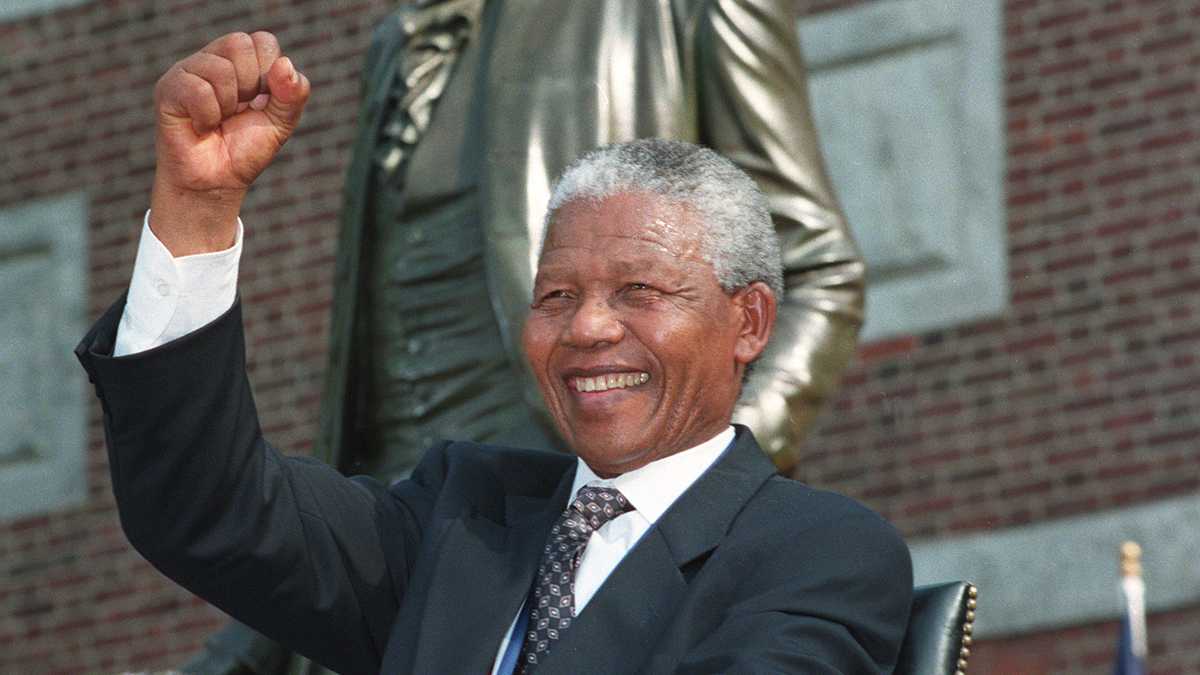A fitting tribute to Nelson Mandela

Nelson Mandela is shown seated in front of Independence Hall on July 4, 1993, in Philadelphia, where he was later presented with the Liberty Medal by President Bill Clinton. (AP Photo/J. Scott Applewhite)
Nelson Mandela was a giant. And now that he has died, we will spend the days ahead recognizing him for all that he accomplished, and mourning him for all we lost when he left us. But after the mourning is through, when the reality of his absence is cemented, and when life, as it always does, goes on, what will we do?
Will we look at the 27 years he served in prison for his pursuit of the God-given freedom both he and his people deserved? Will we wonder at the violence both Mandela and his people endured at the hands of their oppressors? Will we look at Mandela’s own temporary turn toward violence as a solution? Or will we look at his ultimate response to a centuries-long grievance? That response was to forgive, to move forward, and to lead others to do the same. Mandela did so despite tremendous opposition.
I’ve learned throughout my life, and especially in recent days, that it is not up to us to control the actions of others. There will always be those who will work against us, even when it is easier to work together. There will always be those who will hate us in spite of our efforts to reach out in friendship. There will always be those who will express animosity in the face of goodwill. There’s nothing we can do to change such people. But we can always work to change ourselves.
By all accounts, Mandela was a man who spent a lifetime working first to change himself. He was a socialist who was willing to accept capitalistic ideals for the good of the whole. He was a man who turned from violence in order to pursue peace. He was a man who formed coalitions with former oppressors in order to help the formerly oppressed. And ultimately, his willingness to bend, to compromise, and to change in order to achieve his goals, was perhaps the greatest of his attributes. But it all began with his uncanny ability to look inward.
Lessons for Philadelphia
Perhaps that’s what we need to do as a city. We need to look closely at ourselves. Not in a provincial way that makes our own community’s advancement ahead of the improvement of others. Not in a prideful way that leads us to believe we are better than others. No. We need to look inward with a critical eye, and see the ways in which we can improve ourselves with the ultimate goal of helping to improve others.
That’s what Mandela did, and in the days to come, I wonder if we will be able to do that, as well. Not just as a city, but in our households, in our workplaces, and in our communities. If we took the time to do so, we could actually do as Mandela did, and look into the faces of those who have hurt us, and say the words we find most impossible to utter: I forgive you.
The miracle of Mandela was not that he was able to look inward and find the strength to do so as an individual. The miracle of Mandela was that he was able to convince others to do so, as well.
In Philadelphia, where Mandela shared the stage with F.W. DeKlerk, the South African President who ran the racist system that imprisoned and ultimately freed Mandela, we should be able to follow Mandela’s example. If we do so, we will find the strength to forgive, the intestinal fortitude to look forward, and the resolve to act in the best interests of ourselves and those around us.
If we are to remember Nelson Mandela, let us remember him not through our words, or through our tears, or through our grief. Let us remember him through our actions.
That’s the only fitting tribute to a giant.
WHYY is your source for fact-based, in-depth journalism and information. As a nonprofit organization, we rely on financial support from readers like you. Please give today.


